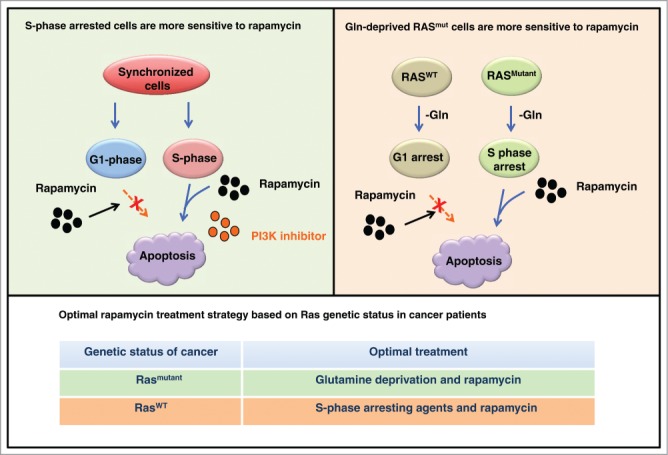Figure 1.

The cell cycle status controls the anti-cancer effects of rapamycin treatments. Rapamycin alone or in combination with the PI3K inhibitors promotes cellular apoptosis in cells synchronized in S-phase, but not in G1-phase of the cell cycle. On the other hand, blockade of glutamine (Gln) utilization leads to a S-phase arrest and induces rapamycin-mediated cellular apoptosis in Ras-mutant cancer cells. These results could provide the rationale to guide the optimization strategy for the clinical usage of rapamycin, based on Ras genetic status in cancer patients.
